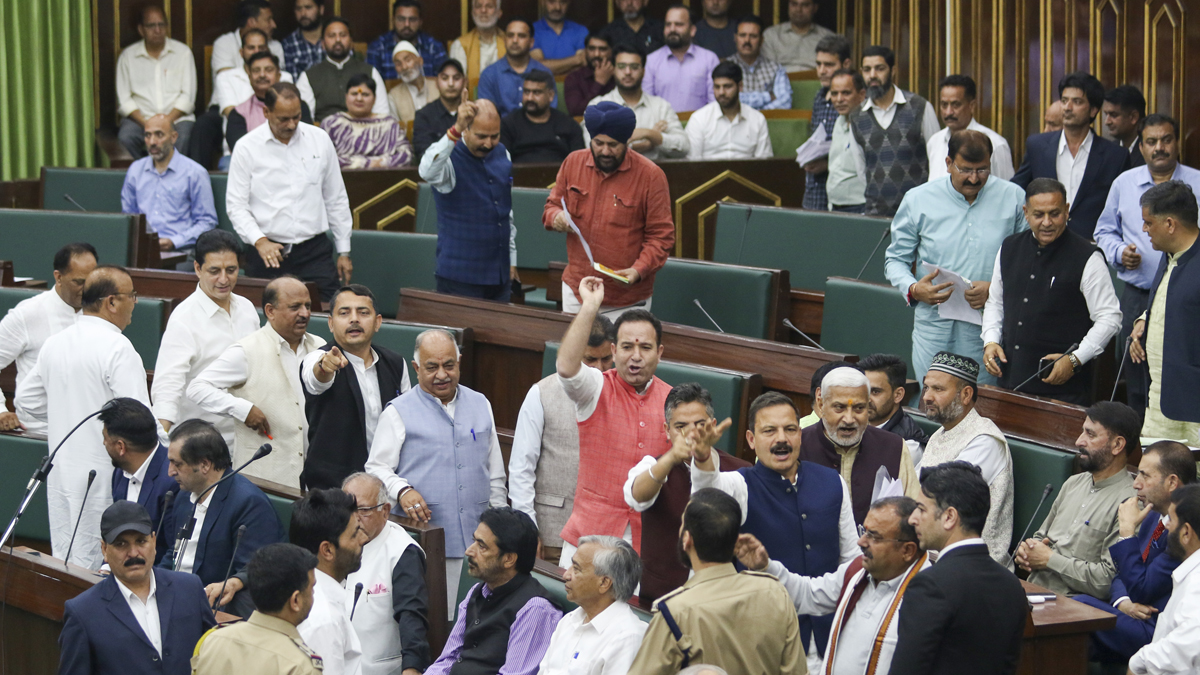Amid waqf row, Kashmiri pandits demand special law to protect Hindu religious sites in J&K
 Jammu: BJP MLAs stage a walkout from the Jammu and Kashmir Assembly during the Budget session, in Jammu, Tuesday, March 25, 2025. (PTI Photo)(PTI03_25_2025_000096B)
Jammu: BJP MLAs stage a walkout from the Jammu and Kashmir Assembly during the Budget session, in Jammu, Tuesday, March 25, 2025. (PTI Photo)(PTI03_25_2025_000096B)
Amid outrage over the Waqf (Amendment) Act, Kashmiri Pandit Sangharsh Samiti (KPSS), a group representing non-migrant Kashmiri Pandits in Kashmir, has demanded a law to protect Hindu religious sites in Jammu and Kashmir. The group has warned it will approach the Supreme Court if the government fails to act.
KPSS criticised the “selective outrage” in the state assembly over the Waqf (Amendment) Act, which led to the disruption of the last three days of the budget session.
KPSS president Sanjay Tickoo said the same lawmakers have remained silent for over three decades while hundreds of temples were encroached upon, vandalised or sold using fake documents. He said since the 1990s, when thousands of Kashmiri Pandits left Kashmir, the community’s temples and religious lands have faced widespread encroachment.
KPSS accused officials and local leaders of ignoring complaints and allowing illegal takeovers to continue. “Over 1,000 Hindu temples and their properties are currently under threat or already lost,” Tickoo said.
He said this silence is not just unjust but also unconstitutional. Articles 14, 25 and 26 of the Indian Constitution guarantee equality, religious freedom, and the right to manage religious institutions. “Yet, Pandits have been denied these basic protections,” he said. “KPSS is calling for a 'Temples and Shrines Protection, Preservation and Restoration Bill' to be introduced in Parliament and the J&K Assembly.
Tickoo said he proposed the law should focus on restoring temples and lands taken or damaged after 1 January 1989, just before the mass exodus.
KPSS demands that all religious trusts managing Hindu temples be brought under legal oversight to ensure transparency and accountability.
KPSS reminded the government that states like Tamil Nadu and Karnataka already have strong temple protection laws. J&K, despite facing some of the worst cases of religious vandalism, still has no such law.
“The time for silence is over,” Tikcoo said. “Our temples are not just buildings — they are part of our identity. Until they are restored and protected, we will not stop.”
India